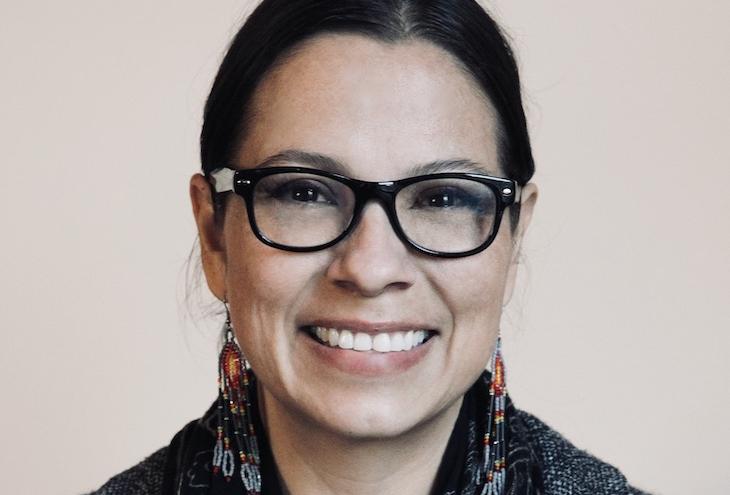Julia Blue Bird is curious about a lot of things. She has earned three master’s degrees, one in electrical engineering from the University of Southern Florida and two from Columbia University in philosophy and astronomy and in astrophysics. But these days her curiosity is focused on galaxy evolution over cosmic time as she completes her PhD in astrophysics at Columbia.
With her engineering background, Blue Bird is well equipped to explore the specialized field of radio astronomy. Her dissertation is on the relationship of the spin of galaxies to the underlying structure of the universe. “In my current role as a research scientist, I use powerful telescopes to study how galaxies evolve,” says Blue Bird, Oglala Lakota. “This is done in radio frequency band, whereas the Hubble Space Telescope is in optical band.”
The newly upgraded Very Large Array Radio Telescope she relies on is located outside Socorro, N.M. “It has amazing capabilities,” says Blue Bird, who also notes that other telescopes are being built in places such as Chile, South Africa, and Australia.
Her research is tied to a much larger survey of the universe called CHILES (the COSMOS HI Large Extragalactic Survey). “We use our data to give us an understanding of the extended outer parts of hundreds of galaxies,” explains Blue Bird. “We don’t know that much about how galaxies evolve. With these powerful telescopes we are able to study galaxies back 5 billion years, which has never been done before.”
Blue Bird believes her desire to know more about the universe is a link to her Native roots. Born on the Pine Ridge Reservation in South Dakota, she returns annually to participate in ceremonies and strengthen her connection to her family and her heritage.
Even as a little girl, Blue Bird was curious about how things work and demonstrated an aptitude for math, which she believed could be her ticket to see the world. “Growing up in such a small, rural area, the thought of seeing other places was something I dreamed about,” she says. “My first trip on an airplane was in college when I traveled to my first AISES conference.”
When she was 17, she moved to Rapid City, S.D., then she headed to college at South Dakota School of Mines and Technology. But college got off to a rough start. “I was working full time and really wasn’t focused,” Blue Bird says. “I had poor study habits, and that didn’t help. I felt lost.” But then she met Dr. Jack Weyland, a professor involved with AISES. “He became my mentor and completely changed my life,” she explains. “He was understanding and encouraged us Native students to stay in school.” Blue Bird soon became active in AISES, served as chapter vice president, and ultimately became a Sequoyah Fellow.
After graduating with a degree in electrical engineering, Blue Bird moved to Denver, where she worked as a radio frequency engineer for a national phone company. “We built networks in remote, rugged terrain,” she says. “That job was filled with adventure as we climbed gigantic towers and hung huge antennas that shot across mountains.”
Blue Bird also worked for a venture capital startup that helped build the world’s first 3G networks — the backbone for broadband wireless. “Because it involved the development of communications systems, that job helped lay the foundation for my next opportunity with NASA,” she says.
Her role with NASA brought her in touch with AISES co-founder J.C. Elliott High Eagle, a veteran of the Apollo program who became her mentor. “I was hired to develop a broadband communication system for the moon’s surface for tracking astronauts and lunar vehicles,” she explains. From there she worked on the primary communication system on the Orion spacecraft.
It was during her eight years at NASA that she transitioned her role from radio frequency engineer to aspiring observational radio astronomer at Columbia. With just a year and a half until she completes her doctorate, Blue Bird is considering her future path. She may stay in the U.S., or she may explore opportunities with those radio telescopes in other countries. No matter where she ends up, her exploration of the universe won’t stop.













